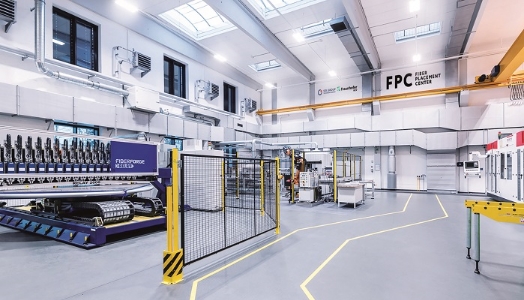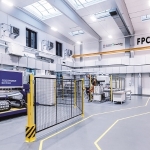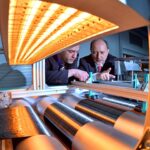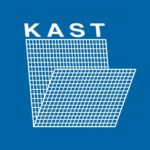As part of the material mix of the future, fibre-reinforced plastics are gaining in importance, especially in the automotive and aerospace industries. Continuous further development of fibre processing is crucial; and automated, load-path optimized, material efficient laying and cutting of fibres, referred to as fibre placement, presents a particularly advanced method. “Fibre placement enables a high degree of automation in production, while offering high flexibility and extremely efficient material utilization. These technologies, which are already established for aerospace applications, will be transferred into other industrial sectors for highly efficient large-scale production. For many of our customers, this is a promising opportunity to exceed existing process capabilities for serial production of components made from fibre-reinforced plastic,” explained Andreas Wüllner, Head of the Composites – Fibres & Materials Business Unit at SGL Group. Over 500 m² of lab space with different high-tech machines, the new development and manufacturing centre offers customers the possibility to develop production concepts and demonstrate their feasibility by prototyping. Furthermore, in the event of a demonstrated cost benefit, SGL Group may implement an industrial production of fibre-reinforced parts. Both dry and pre-impregnated fibres with or without thermoplastic matrix systems will be processed. This work is synergetic to the ongoing R&D activities performed by SGL’s Lightweight and Application Centre in Meitingen, the research team from Fraunhofer IGCV in Augsburg and the Chair for Carbon Composites at the Technical University of Munich. Bilateral projects with aerospace companies for secondary and primary structural parts in various aircraft types are already prepared at the Fibre Placement Centre, along with development projects in collaboration with various automotive parts manufacturers worldwide. The Fibre Placement Centre will officially launch operations on 6 March 2018, with the presentation and opening at the JEC World trade fair in Paris. “The Fibre Placement Centre clearly reflects the mission of the Fraunhofer Society, to provide substantial support in knowledge transfer to the industry by means of applied research and to advance the industrialisation of fibre-reinforced plastics,” commented Dr Klaus Drechsler, Head of Chair of Carbon Composites at the Technical University of Munich. “Fibre placement processes are well suited for future applications due to their high level of automation and material efficiency. These developments benefit significantly from industry-oriented research activities.”













